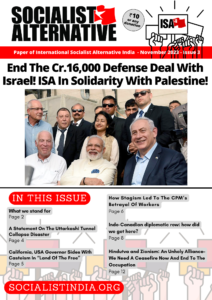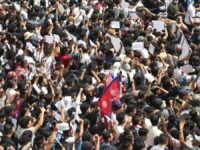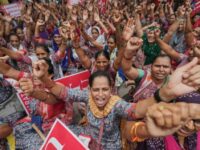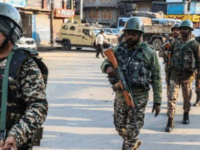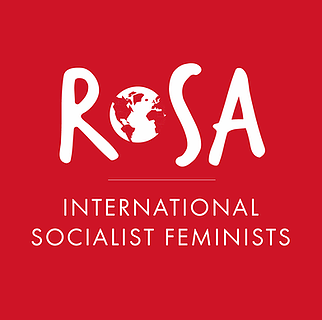Launch Meeting of the Project for a Marxist Revolutionary International
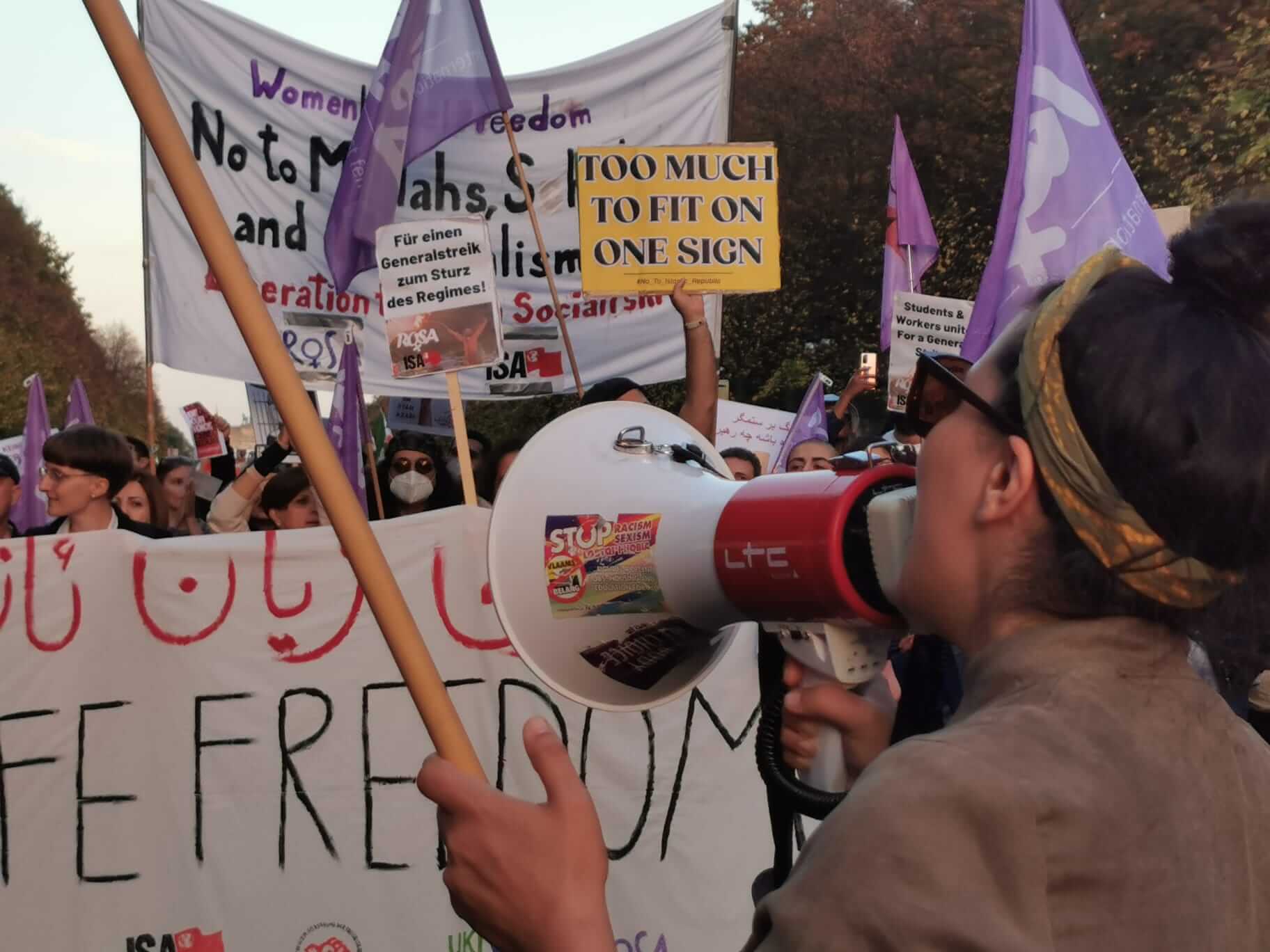
Over the weekend of August 31 and September 1, 2024, more than 130 people from 29 countries gathered to get the ‘Project for a Marxist Revolutionary International’ off the ground. The meeting focused on laying the framework for this new project, aimed at eventually reconstituting a new Marxist International.
This process has become a pressing necessity in the face of the political bankruptcy and rapid collapse now engulfing International Socialist Alternative (ISA)—a crisis both triggered and compounded by its current leadership’s disgraceful mistreatment and failed coverup of a grave case of gender-based abuse inside its ranks.
Those responsible for this debacle have not only refused to politically reckon and account for what they did, but also wielded their control over ISA’s apparatus to marginalise, discredit and gaslight anyone who opposed this mishandling. The immeasurable harm caused by this corrosive approach within and around the ranks of ISA is difficult to put into words. Many comrades and survivors have been deeply affected, and the damage runs far deeper than some would care to admit.
In the eyes of all those committed to the Project, this experience has marked a profound political betrayal of everything ISA once claimed to stand for, and inflicted irreversible damage to this organisation’s internal capacity and public credibility to fight against gender-based oppression and violence.
As Rosa Luxemburg once said, “The most revolutionary thing one can do is always to proclaim loudly what is happening.” What is happening today is that, while the world screams out for a viable revolutionary socialist alternative —with the genocide in Gaza standing as the most horrific manifestation of the decaying global capitalist crisis— ISA has tragically failed to rise to this historic challenge.
However, far from simply enacting this setback and rushing headlong into launching something new, the meeting of the Project for a Marxist Revolutionary International was marked by a profound sense of humility and realism. While the discussions of the weekend showed an evident thirst and enthusiasm for this Project, participants also recognized the vital need for a thorough, introspective examination of the roots of this crisis, to confront and learn from the political and organizational failures of ISA and of its
predecessor, the Committee for a Workers’ International (CWI).
Only with a patient, sober, self-critical and transparent approach can political clarity be achieved, itself an indispensable foundation for building a genuinely revolutionary and healthy international capable of withstanding the test of time.
Building an International Today
The first session delved into the political requirements to build a new International today, and the necessity of rooting this process in a dialectical and living interaction with today’s evolving conditions, struggles and consciousness of the working class and youth.
For Marxists, it is not enough to merely support or intervene in movements, or to view them as recruitment grounds; they must also actively participate in them, build them, and learn from them. Without this reciprocal exchange, they cannot develop their own theory and program, rendering them unable to meaningfully contribute to the movements themselves.
Participants highlighted the dangers of sectarianism and of fetishing isolation, a trap the current ISA leadership has fallen into. Initially, it unrealistically trumpeted that there were “no objective barriers to growth”, overlooking the genuine challenges faced by revolutionary organizations in expanding their influence in this period.
The same leaders have since reversed course without explanation, proclaiming that Marxists are “fish on land”, effectively withdrawing into a rigid and defensive posture, much like what remains of the CWI. This retreat is marked by an obsessive fear of “identity politics” (or what they perceive it to be) and of diluting the party’s revolutionary character through meaningful engagement with social movements.
Yet as Marxists have frequently observed, the dangers of sectarianism and opportunism (i.e., sacrificing core principles for short-term gains) are never far away from one another. They have in common a tendency to polish principles to fit a more comfortable, less challenging narrative that can be easily marketed, rather than confronting the real and complex issues facing revolutionaries.
There is no simple recipe for avoiding these pitfalls, but it requires ongoing discussions and persistent efforts to stay closely attuned to the emerging and fighting layers of the working class and oppressed, especially the youth —a focus which used to be a hallmark of the CWI during its prime. However, both the current CWI and ISA have failed to concretise this approach to the demands of the new historical period. How effectively this challenge is met will determine the survival and success of any revolutionary international moving forward.
Democratic Centralism
Emphasis was also placed on the relevance of democratic centralism for building a future revolutionary International—not as a rigid formula to systematically enforce ‘majority rule’ in the face of disagreements, but as a dynamic, living and flexible political concept.
Unity in action is indeed critical for any organization aiming to overthrow global capitalism. But such unity must emerge as organically as possible, based on the broadest possible democratic engagement and discussion as the conditions allow.
It cannot be sustained through coercion, whereby ‘majority votes’ are used to maintain control and serve as a substitute for genuine political debate in the organisation. This top-down method, typical of the current ISA leadership’s modus operandi, bears no resemblance to the practices of Lenin and the Bolsheviks.
This is why rushing to establish new democratic centralist structures without first taking the time to discuss and thoroughly clarify the political foundations of the new International, is tantamount to putting the cart before the horses. There is widespread recognition that a period of extensive discussion will be necessary before we reach that point. During that time, the various entities committed to the Project will discuss, test and develop a new shared understanding.
This phase is critical to achieving political clarity and establishing the programmatic basis for a cohesive and resilient organization in the future—as the natural outcome of a process of discussion and collaborative work— as well as to purging the fraught and toxic elements in the party-building culture inherited from our past. Given the profound crisis not only within our previous international but within the broader international left, the chest-thumping proclamation of a ready-made, new International without laying this groundwork would be premature, inherently fragile, and ultimately doomed to failure.
Politics must always take precedence, shaping the organizational forms required to put those politics into action. Similarly, the bureaucratic degeneration witnessed in both the CWI and ISA is inseparable from the political and ideological problems and blindspots that have plagued these organizations —issues the Project is determined to confront head-on.
The Importance of Socialist Feminism and Anti-Oppression Work
In this context, the meeting reaffirmed the central role of Socialist Feminism and the fight against all forms of oppression—including racism, LGBTQIA+-phobia, ableism, casteism—in the future International’s work. The crisis in ISA over the last year has starkly illustrated the need to deepen our understanding of such questions, and their significance in building an organisation equipped to lead the struggle against capitalism.
Current global events, not least the explosive protests against rape and femicide in India—which have prompted the Indian Medical Association to launch historic nationwide strike action—have reaffirmed the major role these issues play in shaping today’s struggles and radicalisation, and the absurd claims made by the current ISA leadership that the feminist struggles have “reached their peak”.
A narrow view of class and class struggle, that relegates the battles against specific oppressions as secondary or peripheral, while elevating the economic struggle as the ‘main deal’, still pervades the thinking of both the current CWI and ISA. The need to break from this flawed and harmful approach, to understand the intimate relationship between exploitation and oppression, and to wage an indefatigable fight to fully integrate these struggles into the left and the working class movement, was underlined.
Equally important is a critical reevaluation of our anti-racist and anti-imperialist record, and what the building of a genuinely internationalist organisation must entail in today’s conditions.
The sharing of experiences of comrades from sections and groups in neo-colonial countries like Brazil, Mexico and India has highlighted a pattern of condescending, Western-centric and top-down behaviour by ISA leading comrades based in sections in imperialist countries, and a tendency, dating back from the CWI years, to treat revolutionary work in these parts of the world as suppletive to the work in the advanced capitalist countries. Needless to say, such an approach is outright detrimental to the healthy development of revolutionary cadres.
A systematic incorporation of the rich legacy of anti-colonial and anti-imperialist struggles as well as the ongoing experiences of oppressed peoples around the world into our analysis and methods of work will be a critical component of rebuilding an International worthy of the name. This task is more urgent than ever amidst escalating inter-imperialist conflicts, a growing chasm between the advanced nations of the Global North and neo-colonial regions, a new imperialist-driven scramble for resources, and a wave of uprisings from Kenya to Bangladesh.
Improving the diversity of the organisation and representation of oppressed demographics within the leadership structures, and developing an international anti-racist caucus, were also identified as important steps to address some of these weaknesses.
Our future international must also reject any ‘mother-section’ mentality. While anxious to transmit their experience, the Bolsheviks were also acutely aware of the risks posed by the Russian Marxists dominating the life of the Third International, and hindering the growth of newer and less experienced sections. The leadership of the CWI, despite starting with an internationalist approach, did away with such concerns over time, its composition and political analysis becoming increasingly insular and grotesquely imbalanced towards the England and Wales section.
However, within ISA, rather than nurturing a more pluralist construction, key parts of the international leadership saw in the United States the new ‘model’ to emulate. In contrast, our future international must be built on true international revolutionary cooperation —united by core political principles but embracing and enriching itself through the diversity of experiences. As the late Irish Marxist Peter Hadden explained in ‘The Struggle for Socialism Today’, “In building a revolutionary party it is not possible to proceed from the experience of only one country.”
Provisional structures
At the conclusion of this two-day meeting, a provisional steering committee was elected to guide the next phase, along with an international safeguarding team. Additional working groups on finances, media, and socialist feminism will be established to coordinate international work. The process will be open to further contributions and reports from the different entities, in order to ensure broad participation. The next wider meeting of the Project will be scheduled for November.
While a serious review will be a central element of the Project and a necessary prelude to the formal launch of a new international, it is not meant to become an inward-looking, international “discussion-club”, but a process nourished from continuing interventions in real struggles and the initiation of common practical work and campaigns. In this regard, the international ROSA conference we will hold next year will serve as a critical cornerstone.
All individuals and groups subscribing to the Project are encouraged to actively participate in this process, to help rebuild, over time, the basis towards a healthy and sustainable revolutionary Marxist International. This meeting marked the first step in a challenging, but hopeful journey. The strong contributions, particularly from younger comrades, demonstrated the potential for a vibrant, future-oriented international that is firmly rooted in socialist principles, and the fight against all forms of oppression.
